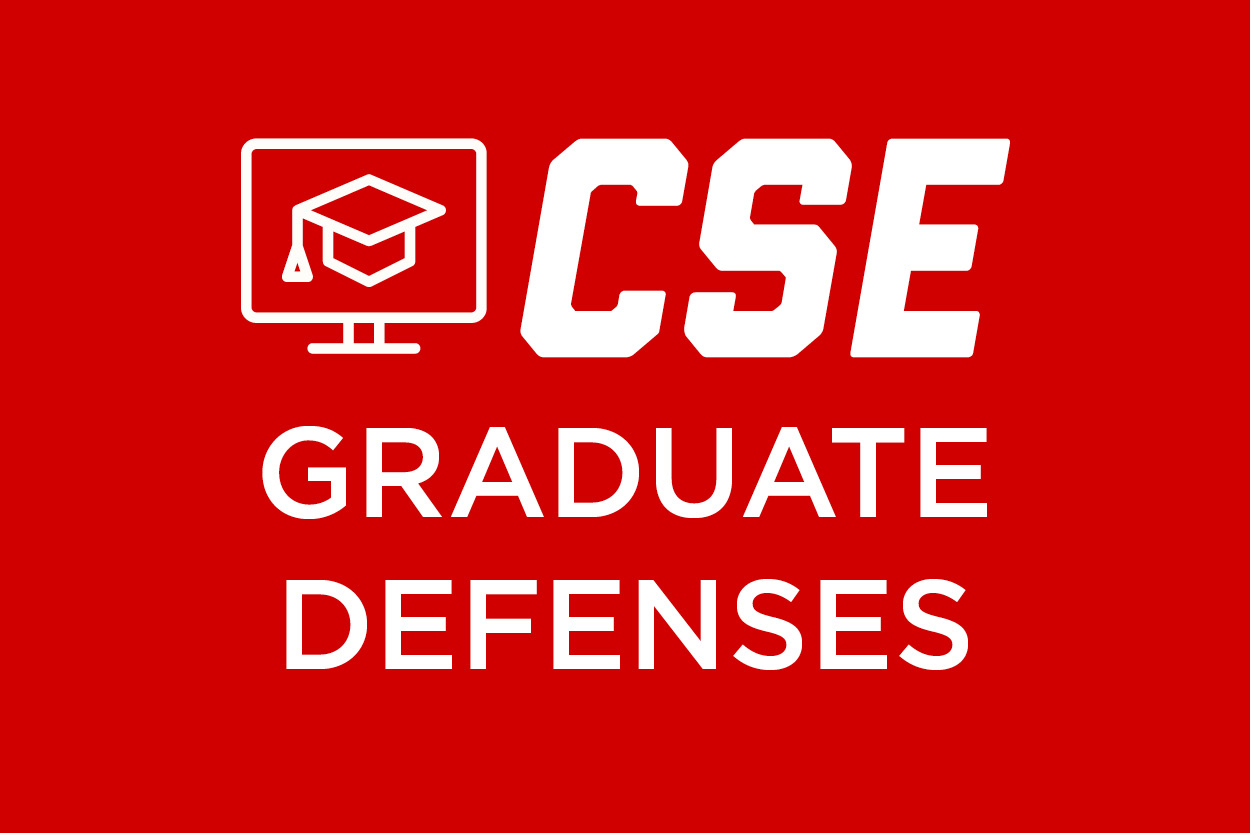
Ph.D. Thesis Defense: Nan Jiang
Tuesday, July 27, 2021
8:00 AM (CST)
Zoom: https://unl.zoom.us/j/93221170591
Title: "Power Efficient Virtual Reality Streaming"
Virtual Reality (VR) video streaming (a.k.a., immersive streaming, or 360-degree video) has become increasingly popular because of the immersive environments enabled by head-mounted-displays (HMDs). The HMD users are able to switch their viewports freely in 360-degree virtual environments, which closely mimic their physical world experience and thus greatly increase the quality of experience (QoE). However, the improved QoE comes at the cost of considerably higher power consumption of the HMDs that usually have limited battery capacity. Therefore, in this dissertation, we are aiming to identify and address the power challenges in VR streaming. Firstly, we conduct a comprehensive power analysis of HMDs, which is important for understanding the high-power consumption problem of HMDs. The challenge is that an HMD is usually a highly integrated system, and thus hard to investigate the detailed power breakdown. With a set of carefully designed test cases using different configurations, we observe that view generation (37.2%) and network transmission (24.1%) are the top two power-consuming components of VR streaming. Secondly, we propose a novel view rendering algorithm, QuRate (Quality-aware and user-centric frame Rate adaptation mechanism), to reduce the power consumption of view generation. The challenge is how to maintain desired QoE while reducing the power. Different from existing works that focus on the spatial-domain, our proposed QuRate leverages the user QoE sensitivity in the time-domain. A comprehensive set of subjective and objective experiments show that QuRate extends the battery life by up to 124% while introducing a minimum impact on QoE. Finally, we propose a novel QoE-aware network packet scheduling algorithm to reduce the power consumption of network transmission. The challenge is how to reduce the power from the network aspect while maintaining an acceptable level of QoE. We have identified the network-related QoE (the comment latency in Danmu feature of VR streaming), and proposed the QoE-aware packet scheduling algorithms to reduce the network power consumption. Experiments show that our proposed algorithms can reduce the network power consumption by up to 28% while maintaining desired QoE.
Committee:
Dr. Lisong Xu, Chair
Dr. Sheng Wei, Co-Chair
Dr. Witty Srisa-an
Dr. Wei Qiao